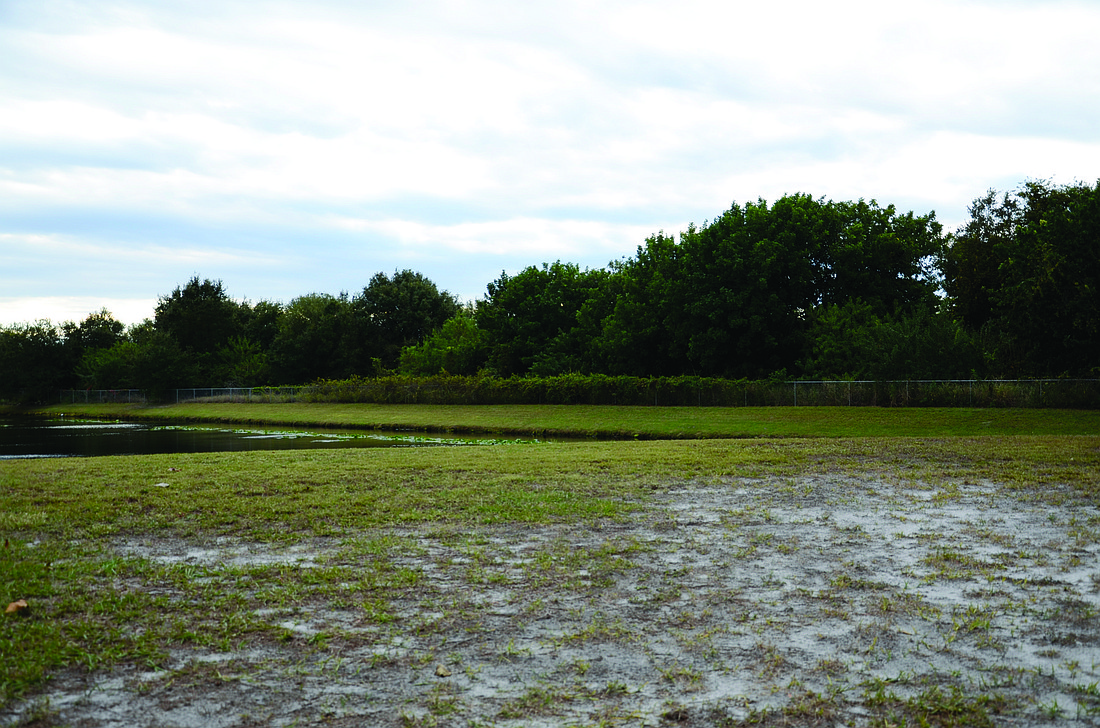- April 19, 2024
-
-
Loading

Loading

Barry Tuchfeld walked out his front door, breathing in the early morning air. But as he walked to the end of his driveway on Prairie View Drive, he realized he wasn’t alone.
A coyote the size of a German shepherd was meandering through his front yard. When it saw Tuchfeld, it casually wandered off. It was not afraid of him, Tuchfeld said.
Tuchfeld said he didn’t feel threatened, but that it was certainly an interesting experience.
“A feral cat will take off — this guy was just like, ‘See you later,’” Tuchfeld said.
Coyotes have been living in the vacant lot behind the Jewish Federation of Sarasota-Manatee for years, and some nearby residents in the McIntosh Meadows subdivision wonder why no action has been taken to relocate them.
Joseph Sipos, who lives next to the 35 acres of undeveloped property, emailed the county in October to alert it of the coyote pack in the field. And it hasn’t been the first time he’s tried to motivate authorities to take care of the wild animals.
In March 2013, Sipos contacted the county after the neighbors suspected coyotes killed three missing cats. At the time, Sipos also said the rabbit population in the area had declined.
Now he worries about the coyotes’ proximity to kids’ play areas. “It’s a safety hazard,” Sipos said.
The lot, which abuts about 35 homes, sits behind soccer fields at the Jewish Federation. Sipos is concerned the coyotes could pose a threat to people using the field.
Sipos is also unhappy about the noise — the coyotes howl together, especially after an emergency vehicle passes with sirens blazing on McIntosh Road.
“If it was a neighborhood dog, something could be done,” Sipos said.
Urban coyotes are a nationwide issue. Cities across the U.S. are learning to coexist with the animals, said Gary Morse, the regional spokesman for the Florida Fish and Wildlife Conservation Commission.
In Florida, the coyote population has been growing since the 1970s.
Relocating the coyotes will not solve the problem, Morse said. In fact, removing a pack from an area can make the problem worse.
Trapping a pack leaves the area open for a new pack. When coyotes move into a new area, they produce more offspring. They can also learn to avoid traps.
“There’s no practical solution to control the coyote population,” Morse said. “They’re smart, they’re so well-adapted … a lot more than people realize.”
Morse said FWC has been trying to educate communities around Florida that urban coyotes are here to stay — and people are surprised.
“The reaction is disbelief that we can’t control coyotes,” he said.
Morse said coyotes don’t pose much threat to people because they are not typically aggressive. The largest problem is protecting pets (see box).
If residents want to take matters into their own hands, they can hire a trapper to remove the animals.
The Jewish Federation also reached out to the county and FWC about the coyotes after it received complaints, said Christopher Alexander, communications director for the organization. But based on what the FWC said, the organization learned eradication would be ineffective.
“They’re not going to eradicate them unless there’s a serious human health risk, and there isn’t one now,” Alexander said.
Tuchfeld said he didn’t feel strongly for or against removing the coyotes, although he thinks concerns about pet safety are legitimate. He has his own small pets and doesn’t want them to be attacked.
“It’s an interesting challenge,” Tuchfeld said. “It’s an issue, but on the other hand, it’s their natural habitat.”
CITY SLICKERS
Gary Morse, with the Florida Fish and Wildlife Conservation Commission, says city life is easier for coyotes. He cites a study that found coyote populations are three to six times larger in urban areas than rural areas.
One reason is there’s a wealth of food sources, which includes small pets. Here are some tips to keep pets safe:
• Keep pets on a leash and don’t let them out alone at night, especially cats;
• Be alert when walking pets near wooded areas at night;
• Frighten coyotes with loud noises, or throw sticks;
• Carry a “coyote shaker” - a can with pennies inside to rattle and make noise.
Courtesy Florida Fish and Wildlife